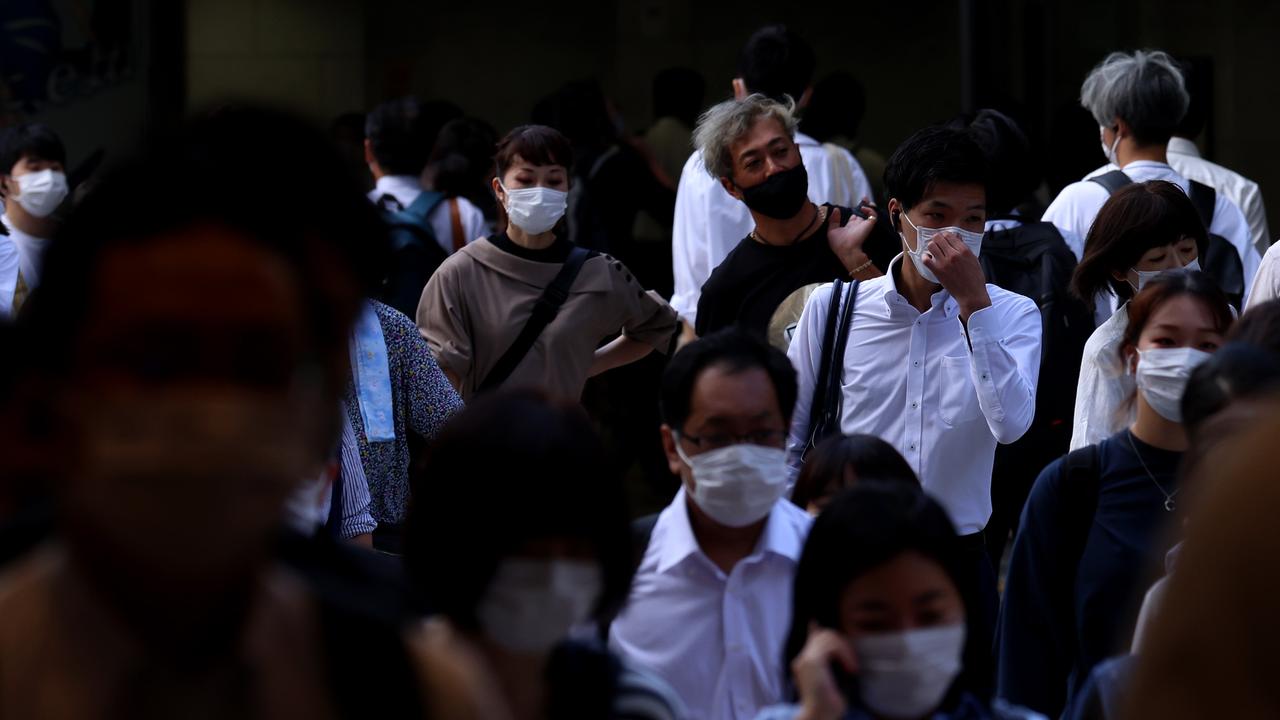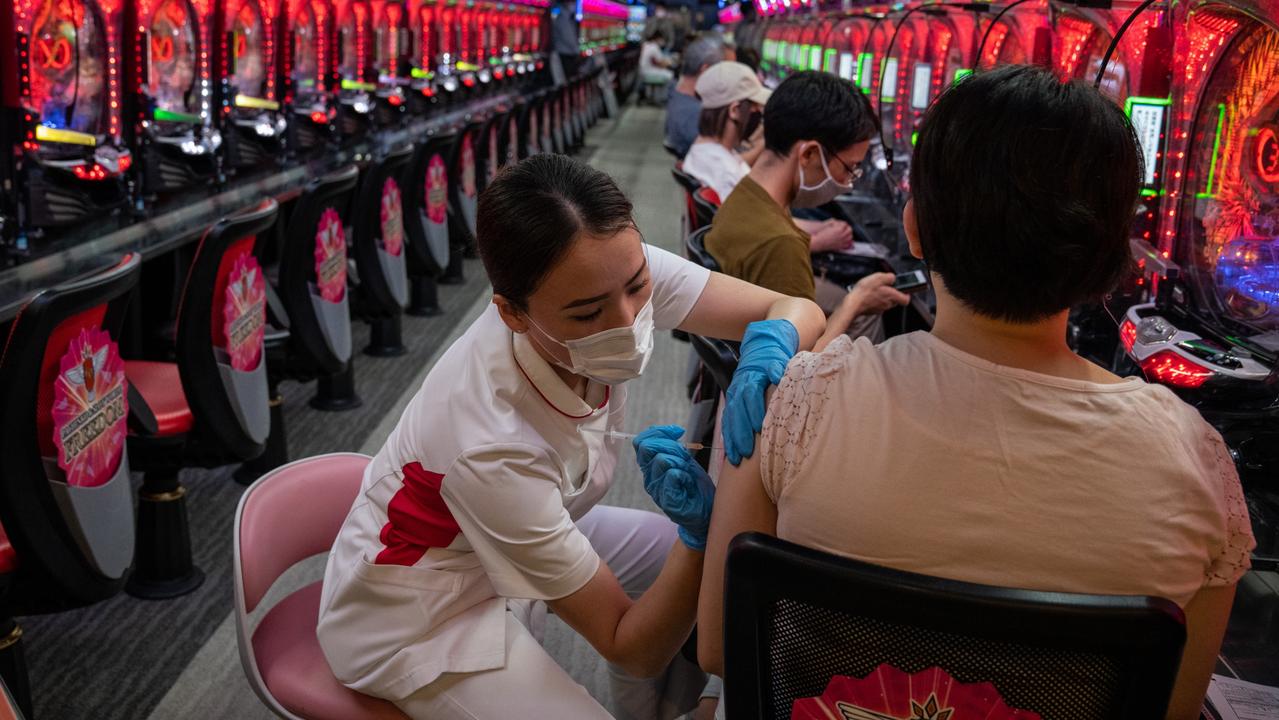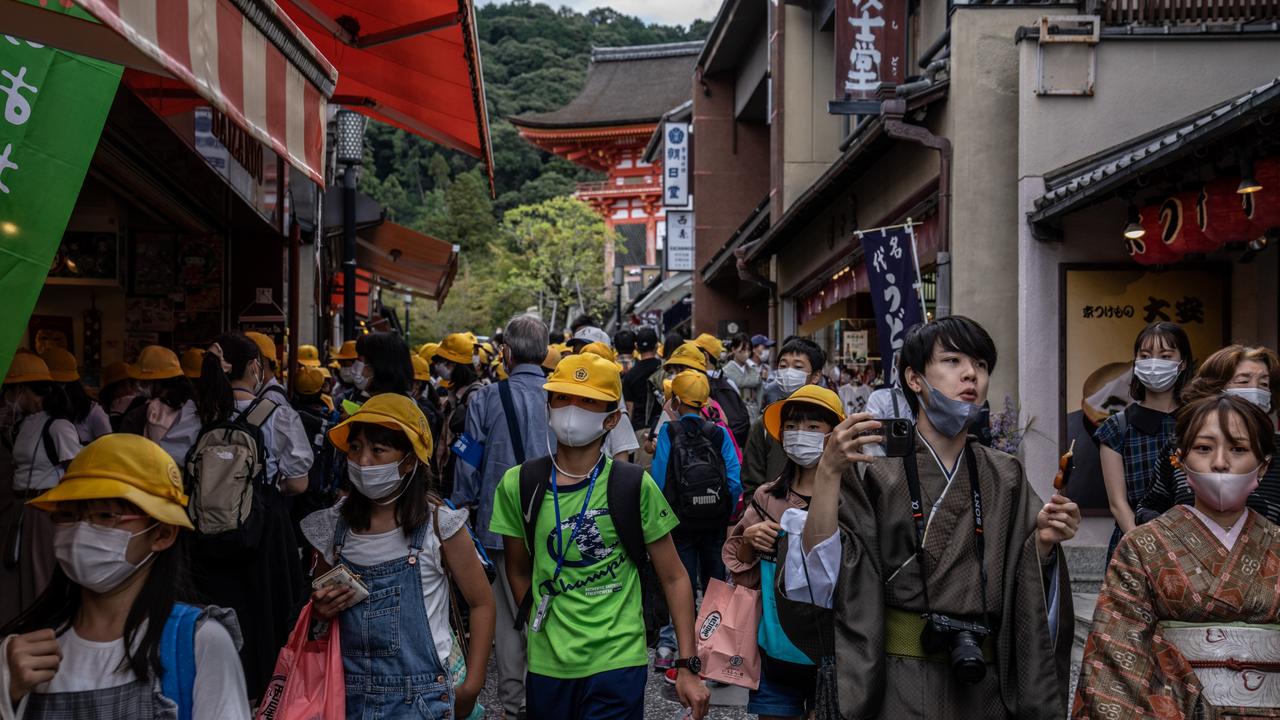Japan’s miracle coronavirus turnaround baffles experts
Japan was headed for a Covid disaster before an unexplained turnaround that has baffled experts. This is what Japan did differently.

In the weeks before and after the Tokyo Olympics, there were widespread fears that Japan was hurtling toward a coronavirus disaster.
Driven by the highly contagious Delta variant, nationwide cases just days after the Games drew to a close exceeded 25,000. Hospitals were at breaking point — with a shortage of beds forcing thousands of infected residents to face the illness or, sadly, to die at home.
Yoshihide Suga, who was Prime Minister at the time and had ignored his chief health adviser by pushing ahead with the Games, despite widespread public opposition, was forced to resign.
While Japan has never had anything close to a lockdown — unlike Europe, other locations in Asia, Australia and New Zealand — a six-month state of emergency in Tokyo and its surrounds looked likely to be prolonged.
Headlines in publications around the world declared that the Olympics had “shattered” the population’s trust in their Covid strategy “at the worst possible time” and that the situation in August was “bad and getting worse”.


And yet in recent weeks, what was thought to be Japan’s “fifth wave” has rapidly subsided. From a mid-August peak of nearly 6000 daily infections in Tokyo, caseloads in the capital are now at an 11-month low, clocking in at less than 100 every 24 hours for over a week.
There are just 31 patients with what’s recognised as “severe” virus symptoms under the Tokyo government’s standards being treated in hospital.
Bars are packed, trains are crowded and the mood is celebratory — and public health experts are baffled at how what appeared to be a crisis has turned into a story of success.
Vaccines and behavioural changes key to success
While there is no single factor to the nation’s turnaround, officials say the effect of vaccinations and a change in people’s behaviour have played a role.
After a slow start, nearly 70 per cent of the country’s population have now received both doses of a coronavirus jab, with multiple surveys confirming the high efficacy of the vaccines in preventing secondary infections among the community.
Speaking to the Japan Times, Tokyo Medical University professor Atsuo Hamada said that not only are more and more people getting vaccinated, but that after the Olympics, people started to refrain from behaviours that could increase their risk of infection.
“The Delta variant is more transmissible than the original novel coronavirus, but its virulence may have become weak,” he said, also noting that indoor spaces were being appropriately ventilated now that the summer heat had subsided.
Professor of virology at Toho University, Kazuhiro Tateda, told the Associated Press that the vaccination campaign among younger people in particular had driven infections down.
“Rapid and intensive vaccinations in Japan among those younger than 64 might have created a temporary condition similar to herd-immunity,” Dr Tateda said.
Disease Control and Prevention Centre Director Norio Ohmagari agreed, calling the impact of vaccines “extremely big”.
“At the same time, people who gather in high-risk environments, such as crowded and less-ventilated places, may have been already infected and acquired natural immunity by now,” he added.
Japan not ‘100 per cent free’
There are fears, though, that without knowing what’s responsible for the drop in and severity of infections, and as the weather cools and vaccine efficacy wanes, Japan could face another wave.
Dr Tateda pointed to the so-called “breakthrough infections” in places like Israel, the US and the UK — where the vaccine rollout began much earlier but protection has gradually worn off.
Current plans are to ease restrictions around November — when all people who wish to get the vaccine are estimated to have done — which would see eateries be permitted to serve alcohol, people permitted to travel across prefectural borders and bigger events held with more attendees.

“I know that there were many people who were critical about me, but we can say that these treatments and vaccines are effective, and we do truly see a light at the end of the tunnel,” Mr Suga told reporters during one of his last press conferences as prime minister.
“From now on we must assume that we will live with the virus, and make our society more resilient so as to balance daily activities and antivirus measures.”
The nation’s top Covid-19 adviser, Shigeru Omi, though, cautioned in the middle of September that “the end of the emergency doesn’t mean we are 100 per cent free”.
“Even though the vaccination rate has risen, there will certainly be a rebound if we suddenly ease restrictions,” he told the House of Representatives’ health committee.
While “it is a fact that the number of new coronavirus cases is rapidly decreasing on a national level”, he said, “it may take about two to three years until the public no longer has to worry about Covid-19”.






